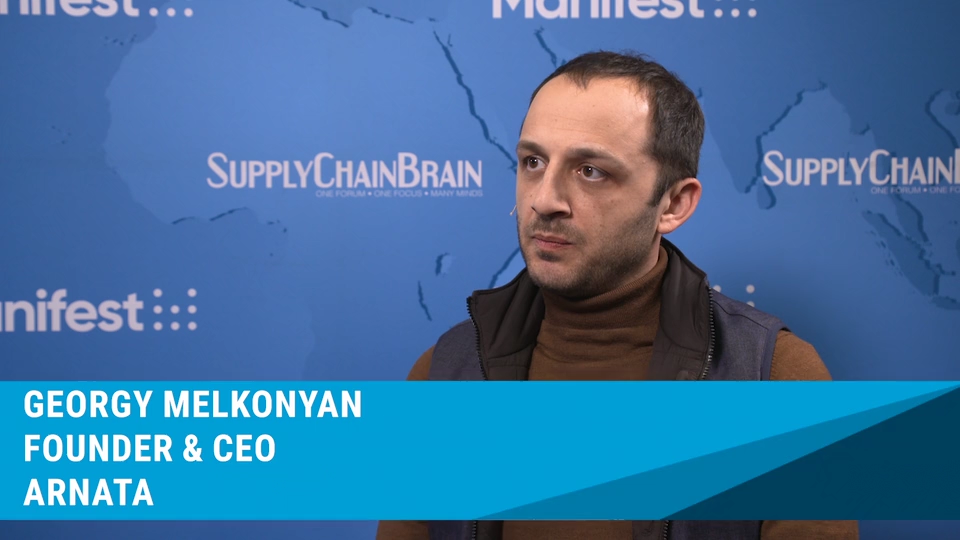[ad_1]
Georgy Melkonyan, founder and chief executive officer of Arnata, sees great value in artificial intelligence in the supply chain, but building that capability in-house is too difficult for most companies.
Agentic AI, or the use of AI agents, refers to the capability of AI platforms to operate autonomously in their decision-making, even though they require training and goals to be set by developers. While “traditional” AI is already being utilized in supply chains worldwide, Melkonyan sees AI agents being of use eventually.
“Building really good AI technologies requires time,” he says. “It’s like having a baby. You can’t have it in one month. You got to have nine months to have a baby. It’s the same with AI applications.”
That argues against building AI applications in-house. While technically possible, Melkonyan says, “It will require a lot of knowledge and a lot of people resources to do that, which is not your core competency. I think if your core business is not AI or technology, you probably shouldn’t invest in developing anything in-house. It’ll be cheaper for you to either partner with someone or acquire the expertise.”
He acknowledges fears that AI will eliminate jobs for humans, but doesn’t see it as a zero-sum situation, in which robots take jobs and humans are left out in the cold. He sees that humans will lose jobs that rightfully should be done by robots, while workers will take jobs that only humans can perform. Humans, he says, are good at building relationships and thinking about creative solutions. “I think AI will empower people to do more.”
For example, an AI agent can make and take hundreds of calls a day to find capacity. “Then they can send their findings to a human to make a final judgment. And they can do that for hundreds of loads.”
[ad_2]
Source link



